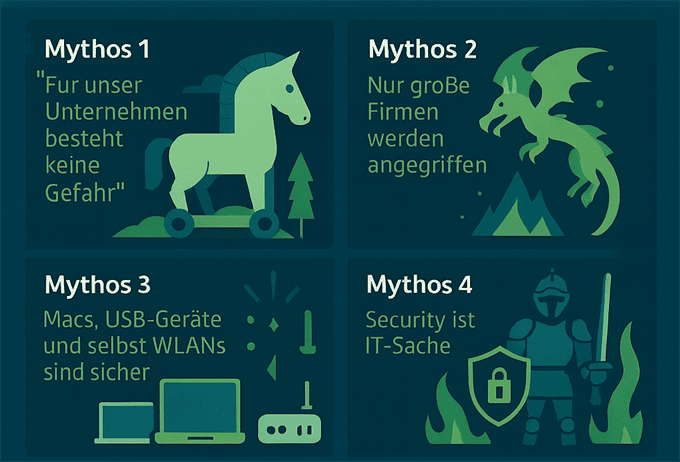More digital experience in the finance and insurance industry
Riverbed, the unified observability provider, has announced the industry results of the Riverbed Global Digital Employee Experience (DEX) Survey 2023. The survey shows that today's organizations need to adopt high DEX standards to maintain their reputation, avoid risk, reduce costs and retain a new generation of employees.

FSI IT teams are already tasked with upgrading infrastructure, taking a more proactive role across the organization and delivering omnichannel interactions, all while struggling with tightening budgets and outdated architectures. However, Riverbed's study also found that by implementing the right tools, organizations can meet changing DEX requirements while reducing their current stress levels.
The study surveyed 1,800 global IT decision makers (ITDMs) and business decision makers (BDMs) across 10 countries and seven industries, including nearly 300 FSI executives. The survey explored generational expectations, hybrid working, the evolving role of IT and challenges and strategies for delivering an exceptional DEX.
New generation - digital natives in the FSI sector
Financial companies in particular rely on long-serving employees to retain and pass on the knowledge they have accumulated over years of working for the company.
"One of the biggest challenges facing financial services and insurance companies is the loss of talent - and therefore skills and knowledge - that inevitably occurs when long-serving employees leave or retire. Now that digital natives are increasingly entering the FSI workforce, it is more important than ever that robust DEX solutions are in place. This is not only to keep Generation Z and millennials productive, but also to avoid risk, automate processes, ensure customers' financial transactions are efficient, and enable top talent to work more strategically," says Christian Siemann, Regional Director, Central Region at Riverbed.
"Our Global DEX Survey 2023 confirmed that delivering better digital experiences is becoming increasingly difficult. Encouragingly, most FSI leaders understand the current situation and are taking proactive steps to invest in technologies such as AI and unified observability to strengthen employee and customer engagement."
92 % of FSI decision makers surveyed believe they need to provide more advanced digital experiences to meet the needs of younger employees, and the same percentage state that the younger generation of employees are more demanding of IT resources. The latter figure is higher than the global survey result of 89 %, which shows the importance of meeting new DEX requirements in the financial industry.
FSI leaders must meet digital expectations
In financial services, reputation is everything, and unhappy employees and skills shortages can jeopardize that reputation. FSI executives surveyed believe that 69 % of employees would consider leaving the organization if adequate DEX was not provided, and 68 % say it would be disruptive and impact reputation, productivity or business performance if digital expectations were not met. In an industry where seconds and even milliseconds matter, ensuring a seamless digital experience for employees and customers is critical to the success of a financial organization. In fact, 98 % of executives surveyed state that providing a seamless DEX is important (62 % of critical importance) to remain competitive.
With increased digital expectations and threats to talent, productivity and competitiveness, almost all FSI respondents (93 %) say that investing in DEX is one of their top priorities for the next five years
The challenges of providing a digital experience
Today, delivering a great digital experience isn't getting easier, it's getting harder. 94 % of FSI ITDMs and BDMs surveyed cited at least one major obstacle or gap in delivering a seamless DEX. Survey respondents cited lack of sufficient observability tools (36 %), budget constraints (34 %), too much data (32 %), lack of suitable SaaS or cloud services (29 %) and lack of IT talent/skills (28 %) as the biggest obstacles preventing them from creating a seamless digital employee experience.
However, the issues hindering the digital experience can fix themselves if FSI organizations part with a reduced budget and adopt the best tools that increase productivity, retain employees and enable them to share and build knowledge and skills. Executives are aware of this, as 85 % of survey respondents have set aside money to retrain IT staff, and the overwhelming majority (86 %) believe that unified observability technology with greater automation can also help close the skills gap. Encouragingly, 93 % of FSI IT and business leaders also plan to accelerate the adoption and implementation of digital experiences - a statistic that is 4 % above the global consensus.
Strengthening DEX in financial services companies
As more and more employees demand the ability to work from anywhere, anytime and in complex hybrid and cloud-based work environments, FSI leaders have taken on a more strategic role.
84 % of FSI ITDMs and BDMs surveyed recognize the increasing importance of IT within the C-suite, while 78 percent of ITDM respondents who participated in the survey said they currently have a seat at the C-suite table. In addition, 94 % of respondents agreed that IT is more responsible for driving business innovation today than it was three years ago.
These leaders expect technology to be an enabler to drive the business forward and impress customers and employees. They also see technologies such as AI and unified observability as playing an essential role in delivering exemplary digital experiences. Of those surveyed, 95 % of FSI executives believe that unified observability is important (55 % of critical importance) to remain competitive and deliver DEX, and 94 % believe that more investment is needed in unified observability solutions.
Source: www.riverbed.com









